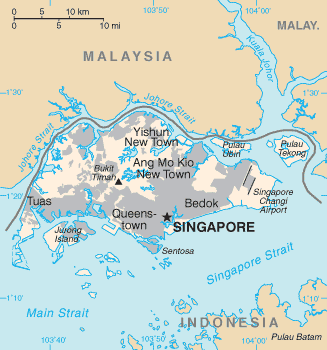Filter by topic and date
Meeting Woes
- Jari Arkko IETF Chair
8 Jun 2016
If you have followed the IETF discussion list recently, you’ve probably seen a thread about a planned meeting in Singapore next year. Traditionally, the IETF announces meeting sites as they have been contracted. After announcing Singapore during IETF-95, we heard from our LGBTQ participants that laws in Singapore make their participation (particularly when they travel with their families) a concern.

Obviously, we all at the IETF value and respect the LGBTQ participants and their families, and it was not an intent to make them feel unwelcome at any of our meetings. The IETF needs a meeting that we are happy with.
But what is the situation, and what is the IETF doing about it? It should be recognised that the discussion about this topic has been difficult. To begin with, we have struggled with agreeing on the specific situation on the ground in Singapore. I suppose part of the difficulty is whether one looks at the practical situation or considers the consequences should the risks be realised. Or takes the position that mere existence of a law is discriminatory. There is disagreement where people can reasonably take different views. Bridging those differences is, perhaps, not a reasonable goal.
And past mistakes aside, no decision in this space will be perfect. We knew that no matter what choice is made, there will be groups of people who feel they are unfairly impacted.
That all being said, it is a good thing when a community can discuss its sensitivity to various issues, approach to diversity, expectations on meeting sites, and so on. I’m proud that the IETF can do that, and do that in the open. The situation is not the same in all organisations. Obviously we can improve on this too, and some improvements on crowd-sourcing some of the evaluation of potential meeting sites is already in progress.
Families and companions have generally not factored into the meeting site selection process in any way in the past. However, during this discussion I believe an understanding of the issues related to situations where families sometimes need to travel with a participant has increased. This recognition has been a useful lesson, and can be applied in future.
But perhaps the most important thing is that, long-term, the community needs to be in charge of what they expect from meeting locations, that we all learn more about the various challenges discussed, we are an open organisation for everybody, and that we improve our processes going forward. It is also crucial that the IETF remains an organisation that can do its technical work, and be open to all of our global participants in a fair manner. And obviously be capable of arranging our operations in the real world, in areas that our participants come from.
Our administrative committee is in charge of contracting at the IETF, including making meeting site and hotel decisions. The IAOC has concluded that under the circumstances and having to choose between a number of imperfect options, Singapore is still our destination in 2017. In addition, I have been working with the IESG to determine what we need to do as a community to ensure that we have proper understanding and documentation of community’s requirements for meetings. Our action plan includes the following:
- Charter a working group to specify an RFC for detailed meeting selection criteria.
- Specify another RFC for the official policy regarding geographic meeting distribution. Our current strategy involves rotation through the continents that have most IETF participants.
- Arrange a special session in IETF 96 in Berlin to discuss the role of human rights, visas, and other aspects of international meeting arrangements.
- Commit to a proper, informed process to identify issues that any subgroup (including but not only the LGBTQ community) has with our site selections.
- Commit to sticking better with our policies on geographic distribution, where we’ve failed to meet as often in Asia as we perhaps should have.
- Continue to work further towards enabling even more virtual collaboration options, in and outside meetings.
For more information about this topic, read the summary of discussion, IAOC’s suggested way forward, and the IESG’s plan on improvements.
Jari Arkko, IETF Chair
Picture credit: Wikimedia / CIA World Factbook (public domain)